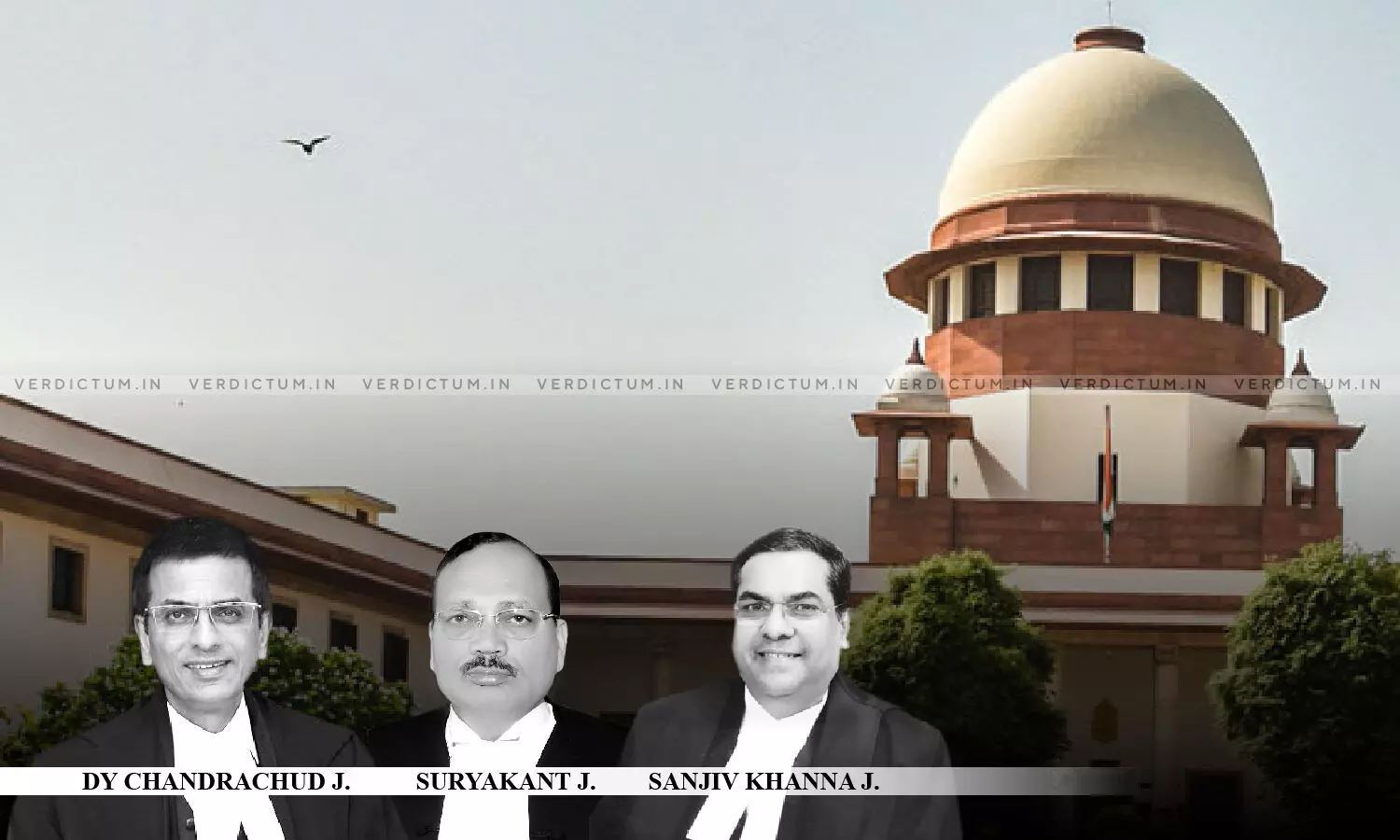
Fee Ceiling Of Arbitrator Is At ₹ 30 Lacs, Payable To Each Individual Arbitrator And Not Tribunal As Whole – SC
 |
|The Supreme Court has held that the fee ceiling of the Arbitrator shall be at Rs. 30,00,000 which is also the highest fee payable.
The Bench of Justice DY Chandrachud, and Justice Surya Kant also observed that the ceiling limit shall be payable to each individual Arbitrator and not the Arbitral Tribunal as a whole.
The Court thus observed –
"The ceiling of Rs 30,00,000 in the entry at Serial No 6 of the Fourth Schedule is applicable to the sum of the base amount (of Rs 19,87,500) and the variable amount over and above it. Consequently, the highest fee payable shall be Rs 30,00,000; and This ceiling is applicable to each individual arbitrator, and not the arbitral tribunal as a whole, where it consists of three or more arbitrators."
The Court also held that a sole arbitrator shall be paid 25 percent over and above the amount of Rs. 30,00,000 in accordance with the Note to the Fourth Schedule.
The issue that was dealt with by the Court was the interpretation of the 6th Entry of the 4th Schedule.
While referring to the 4th Schedule, the Court observed –
"The choice before this Court is between two competing interpretations of the Model Fee where the sum in dispute is above Rs 20,00,00,000. Before we explain the competing interpretations, it is important to note that there is an agreement on the following: i) For an arbitration with the sum in dispute is Rs 20,00,00,000, the fee would be Rs 19,87,500. This will be referred to as the base amount; (ii) For any increase in the sum in dispute over and above Rs 20,00,00,000, 0.5 per cent of the amount above Rs 20,00,00,000 will be added to the fee. This will be referred to as the variable amount. For instance, if the sum in dispute was Rs 21,00,00,000, the amount above Rs 20,00,00,000 is Rs 1,00,00,000. Hence, 0.5 per cent of Rs 1,00,00,000 will be added as the variable amount; and (iii)There is a ceiling of Rs 30,00,000."
With respect to the controversy before the Court, the Bench noted that it is in relation to third point as mentioned above, namely, to what does the ceiling apply. In this context, the Court further noted that there are two possible interpretations –
i) First, the ceiling is for the sum of the base amount and the variable amount. If this interpretation were to be accepted, the highest possible fee would be Rs 30,00,000; or
(ii) Second, the ceiling is for the variable amount only. If this interpretation were to be accepted, the highest possible fee would be Rs 49,87,500.
The Court while referring to the Law Commission of India's 246th Report observed –
"The LCI 246th Report (supra), indicates that the legislative intent behind the introduction of the Fourth Schedule was to put an end to the practise of arbitrators charging exorbitant fees from the parties taking their services in ad hoc arbitrations. Consequently, when we have the option of setting the ceiling of the fees in the Fourth Schedule at either Rs 30,00,000 or Rs 49,87,500, we believe that it would be appropriate to choose the lower amount since it would be in keeping with legislative intent. The 2015 Arbitration Amendment Act was clearly enacted with the intent to give effect to the recommendation of the LCI 246th Report on the point. Thus, we hold that the ceiling of Rs 30,00,000 in entry at Serial No 6 of the Fourth Schedule is applicable to the sum of base amount and the variable amount, and not just the variable amount."
The Court further also held that the ceiling is applicable to individual arbitrators and not the Arbitral Tribunal as a whole.
Justice Sanjiv Khanna's Analysis
The Judge concurred with the findings of Justice DY Chandrachud that the model fee mentioned in the third column of the Fourth Schedule would be the fee payable to each member of the arbitral tribunal, and in cases where the arbitral tribunal consists of a sole arbitrator, he shall be entitled to an additional amount of 25% above the amount specified in the model fee.
The Judge also held that to interpret it differently would lead to confusion and chaos which must be avoided, even if the other interpretation is plausible.
However, Justice Khanna held in view of the above interpretation, the Fourth Schedule does require modification and moderation. To substantiate, this the Judge further cited an example where the sum in dispute is Rs.5,00,000/-, in case of the sole arbitrator, the amount payable to him would be Rs.56,250/-, that is, Rs.45,000/- plus 25% (Rs.11,250) of Rs.45,000/-. In case of an arbitral tribunal of three arbitrators, the fee payable would be Rs.1,50,000.
Referring to this, the Judge further held that the fee mentioned above in the example is too high and d would be unacceptable to most of the litigants as they would be liable to pay minimum arbitration fee of nearly 11% in case of sole arbitrator and nearly 30% in case of an arbitral tribunal consisting of three members.
Thus, the Judge observed, "Section 11A states that the Central Government, when satisfied that it is necessary or expedient, can amend the Fourth Schedule from time to time, which exercise has not been undertaken."
Cause Title - Oil and Natural Gas Corporation Ltd. v. Afcons Gunanusa JV
Click here to read/download the Judgment